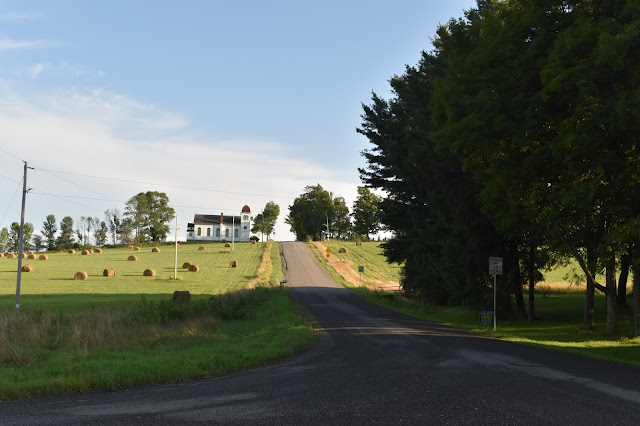A Forest Sounds Like a Ship at Sea:
Pennsylvania or Ireland?
Day 10: Remote Residency at Uillinn: West Cork Arts Centre, Skibbereen, Ireland, 7/18/22 to 8/13/22, Maria Driscoll McMahon checking in from New York State
Ridgebury - site of the mid-19th century Irish Settlement as it looks today
 |
| Long views from the third manifestation of "Our Lady of Perpetual Help Church" which was built by residents of the Irish Settlement. It is very well maintained and attended to this day. |
 |
| Our Lady of Perpetual Help Church aka Chapel on the Hill. Pennsylvania or Ireland? |
 |
| Panoramic view from the church property. The only thing missing is the Atlantic Ocean! |
 |
| Residents of Ridgebury still farm the land to this day |
The bucolic scene we see today provides little hint of the devastation of the land and desperation that drove the Irish to board frequently crowded, disease-ridden, rickety ships and sail west. I am referring, of course, to the potato famine. However, conditions in Ireland in the immediate years before the famine were dire in some places - especially in West Cork -as well.
Cornelius Driscoll arrived in Ridgebury about a decade before the start of the famine. As with the others who would join him - all born in County Cork (specifically Skibbereen and Clonakilty) - he could neither read nor write. It was an act of desperation to attempt to carve out a new life in a strange land which was, itself, undergoing dramatic changes.
However, "'Penn's' Woods" had belonged to other people long before Penn or any other European colonists who found themselves in the rapidly vanishing sylvan paradise.

No comments:
Post a Comment